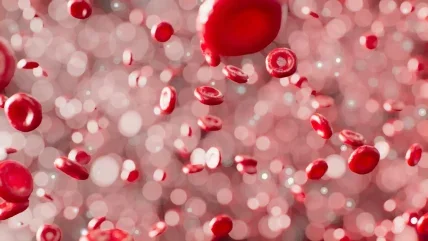
Pfizer has received conditional marketing authorisation from the European Commission (EC) for Durveqtix (fidanacogene elaparvovec) to treat adults with haemophilia B.
Durveqtix is a gene therapy designed to treat severe and moderately severe haemophilia B patients without a history of factor IX (FIX) inhibitors and lack of detectable antibodies to the AAV serotype Rh74 variant.
Pfizer licensed Durveqtix from Spark Therapeutics in December 2014.
The EC’s approval follows recent regulatory authorisations by the US Food and Drug Administration (FDA) and Health Canada, where the gene therapy is marketed as Beqvez.
The conditional marketing authorisation in the EU is based on the Phase 3 BENEGENE-2 study.
BENEGENE-2 assessed Durveqtix’s efficacy and safety in 45 adult males aged between 18 and 62 with moderately severe to severe haemophilia B.
The open-label, single-arm study achieved its primary efficacy endpoint of non-inferiority.
It also showed a statistically significant reduction in the annualised bleeding rate (ABR) for both treated and untreated bleeds after the therapy infusion, compared to the prophylactic FIX regimen.
Efficacy, as measured by ABR, remained stable from the second to the fourth-year post-treatment.
In addition, Durveqtix was generally well-tolerated, and its safety profile was consistent with previous Phase 1/2 trials.
Pfizer chief international commercial officer and executive vice president Alexandre de Germay said: “There is a substantial medical and treatment burden for people with haemophilia B that receive standard of care today, with frequent infusions and many remaining at risk of breakthrough bleeds that can lead to pain and restricted mobility.
“Durveqtix has shown the potential to offer long-term bleed protection in a one-time dose, reducing or eliminating bleeds for the appropriate patients with haemophilia B.”
Pfizer said the authorisation is effective across all 27 European Union (EU) member states, as well as in Iceland, Liechtenstein, and Norway.
Alongside Durveqtix, the American drugmaker has recently reported positive results from a Phase 3 trial evaluating a gene therapy, giroctocogene fitelparvovec, for haemophilia A.
Furthermore, Pfizer’s Phase 3 trial is examining marstacimab, an anti-tissue factor pathway inhibitor for the treatment of haemophilia A and B, both with and without inhibitors.






